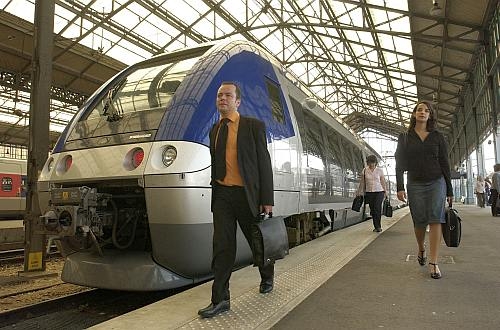Overall passenger traffic rose 0.6% compared with the first half of 2011. Long distance division SNCF Voyages saw revenues climb 4.2% year-on year, although passenger numbers fell 1.1% on domestic TGV services, primarily due to the economic slowdown, poor weather, and additional public holidays which reduced demand for business travel. However, this was offset by a 3.7% increase in international traffic, which was boosted by new services to Germany and Switzerland via TGV Rhin-Rhône, the launch of new TGV services to Italy, and strong performance by Eurostar.
Ridership on TER regional services rose 5.7% year-on-year, while Transilien Paris suburban services saw a 2.4% increase.
Logistics subsidiary SNCF Geodis continued to struggle in the face of tough economic conditions, with overall railfreight revenues dropping 9.7%. French railfreight business Fret SNCF saw 10.1% shaved off its revenues compared with a year earlier.
Group investment in the first half reached €1.16bn, of which 64% was for new rolling stock, and 36% for station upgrades, service centres, passenger information systems, maintenance equipment, and IT systems. Net profits for the first half reached €253m, while SNCF's net debt stood at €9bn on June 30.
"We are pursuing cost control and investment initiatives while deploying an increasingly active sales and marketing policy to promote our services in France and abroad," says SNCF president Mr Guillaume Pepy. "As a result, and despite a very uncertain outlook, we expect to meet and perhaps even exceed our full year economic targets for 2012."
In a press statement, Pepy also confirms that SNCF is working with French Rail Network (RFF) to merge the infrastructure functions of the two organisations into a single unit. "We are firmly committed to the creation of a unified public structure – a powerful tool, and the only way to ensure the system delivers both better operational efficiency and stronger economic performance," he says.

